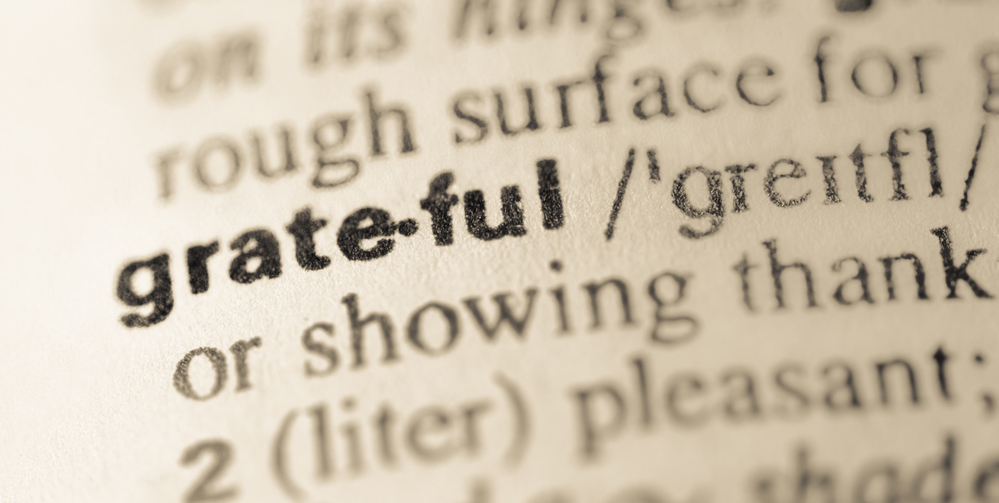“I urge you to please notice when you are happy, and exclaim or murmur or think at some point, ‘If this isn’t nice, I don’t know what is.'”
-Kurt Vonnegut, A Man Without a Country
I’ve heard a lot of talk about gratitude lately, and I love that it’s becoming an ever-present practice in today’s culture. While it’s an age-old idea rooted in many religions and philosophies spanning across the globe, researchers are starting to look into how gratitude can actually enhance our well-being, physicality, mental state, and overall perception of our surroundings.
Gratitude is a great practice, and most people are receptive to the idea. When you think about it, there are very few possible downsides (if any) to saying “thank you” more often in your daily life. The skeptics, however, raise a good point. Is it really that easy? Can you really enhance the quality of your well-being just by making a list of things to be grateful for?
Perhaps it would be beneficial to first define “gratitude.” One researcher defines it as “the appreciation of what is valuable and meaningful to oneself” that “represents a general state of thankfulness and/or appreciation.” And the results indicate that, yes, simply thinking about what you’re grateful for can make a big difference. A 2017 study, for example, examined the heart rates of 32 participants before, during, and after both 5-minute gratitude exercises and 5-minute exercises focusing on resentment. In the exercises expressing gratitude, the participants were told to think about their mothers and come up with reasons why they appreciated her. In the resentment exercises, participants had to think about someone who made them angry and focus on the reasons they didn’t like said individual.
The findings showed that, on average, the participants’ heart rates were significantly lower while engaging in the activities centered on gratitude. On top of that, their findings exemplified the power of gratitude when the participants showed improvements in not only emotional regulation but also in the parts of their brains related to self-motivation. They even suggest that practicing gratitude could be a useful technique in psychotherapy treatments for patients with mood disorders or post-traumatic stress disorder. Similarly, another study’s findings suggest that gratitude techniques could be utilized in psychotherapy treatments due to their effectiveness in boosting an individual’s sense of well-being and overall happiness.
That being said, there are common misconceptions surrounding the effect of gratitude on the brain, namely that it releases dopamine. While this has been an elusive result or fairly inconclusive amongst various studies, it remains clear that practicing gratitude does positively enhance one’s well-being and sense of reality.
With all of this evidence in mind, it seems important that we make an effort to include gratitude as part of our weekly or even daily rituals. I’ve seen this done in various ways from starting a daily gratitude journal to simply making mental notes of small moments throughout the day where you feel appreciative. And these moments can be something as small as an air-conditioned room on a blistering hot summer day or as big as landing a new job. The crucial thing here is that you incorporate this practice in a way that works for you so that you can take your focus off the stress and reframe your reality by focusing on the positives.



